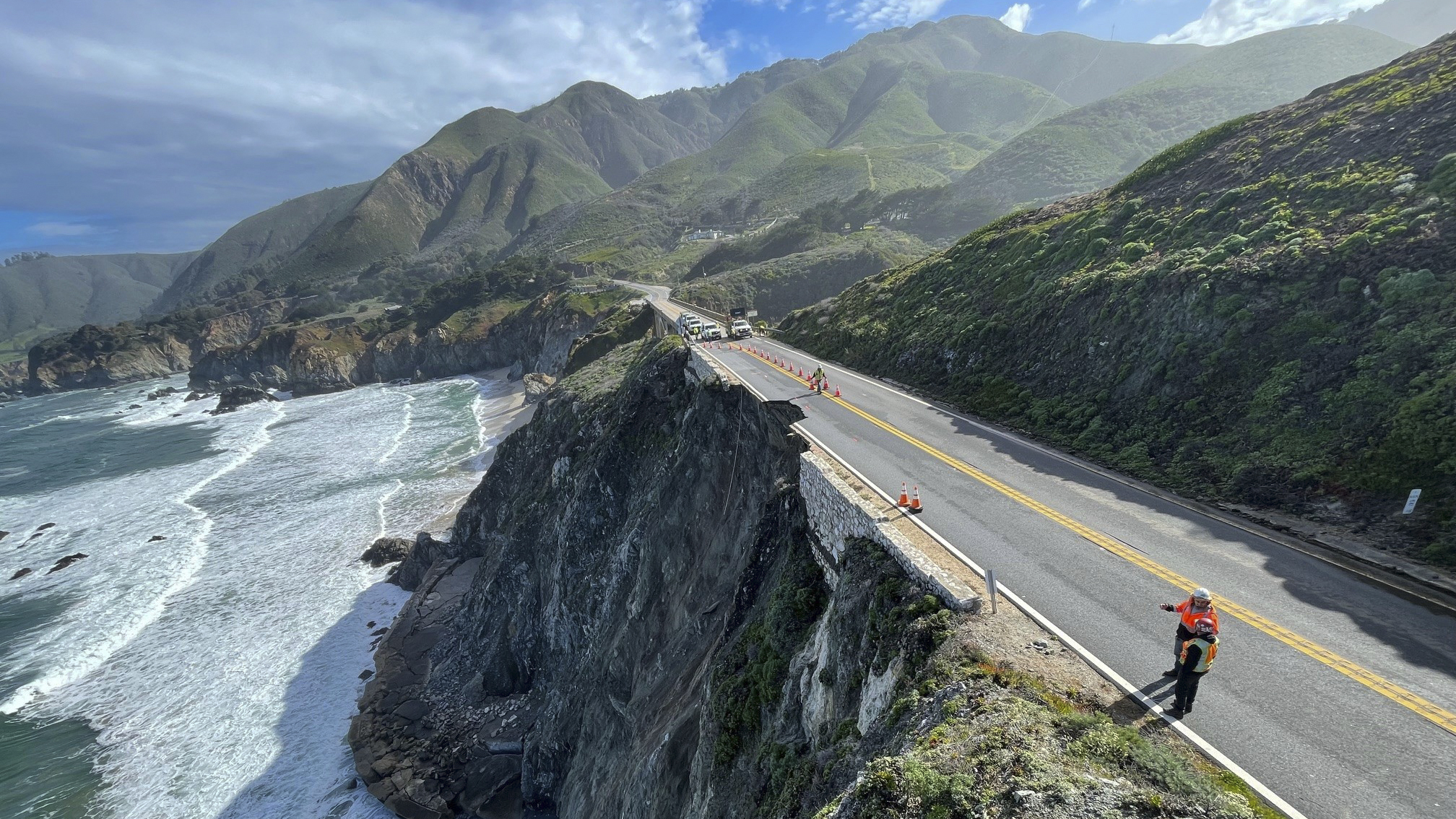Authorities urged motorists to avoid California’s Highway 1 along the central coast after a section of the scenic route collapsed during an Easter weekend storm, forcing closures and stranding motorists near Big Sur, authorities said.
The collapse occurred amid heavy rain Saturday afternoon near Rocky Creek Bridge, about 17 miles south of Monterey, sending chunks of asphalt tumbling into the ocean from the southbound side of the two-lane road.
The highway was closed in both directions in the mountainous area of California’s central coast as engineers assessed the damage, said the state Department of Transportation, or Caltrans.
“We are working on a plan to get motorists evacuated from the area,” the California Highway Patrol said Saturday.
Around noon on Sunday, crews had determined that travel in the northbound lane was safe, and authorities began periodically escorting motorists around the damaged section. About 300 cars were waiting to travel northbound when officials led the first convoy through the area, the San Francisco Chronicle reported.
Some stranded motorists had slept in their cars overnight while others were sheltered at the nearby Big Sur Lodge, the newspaper said.
Caltrans spokesperson Kevin Drabinski said periodic convoys would continue over the coming days as crews shore up the highway, which had other closures because of rocks and debris in lanes. He urged people to avoid the area.
The famous route has seen frequent closures because of collapses, mudflows and rockslides during severe weather.
The slow-moving storm dumped heavy rain at lower elevations and more than a foot of snow at Sierra Nevada ski resorts around Lake Tahoe.
Ryan Kittell, a National Weather Service meteorologist, said the system is typical for March but was not an atmospheric river like many of the other storms that have pounded the state in recent winters.
The storm exited the San Francisco Bay Area on Friday and “just marched right down the California coast,” bringing most of the rainfall to the Los Angeles area, Kittell said.
The storm then parked itself over Southern California, where it was expected to stay into Monday. Showers and possible thunderstorms, with the potential for lightning and damaging winds, were still possible for parts of Santa Barbara, Ventura and LA counties.
